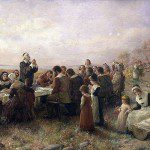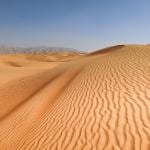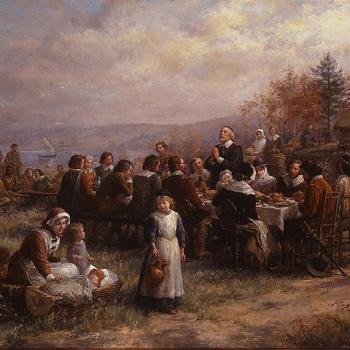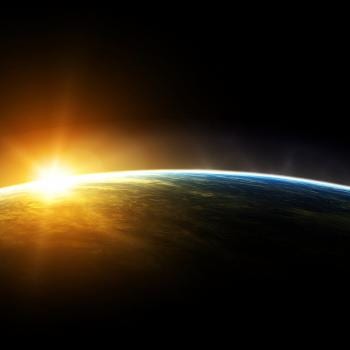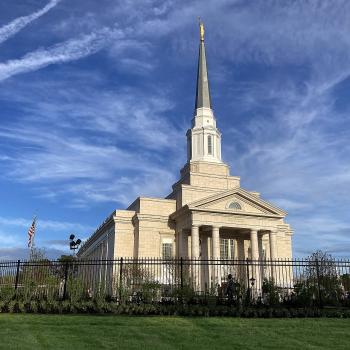I wish a Happy Thanksgiving to all of my fellow Americanos out there. And — why not? — I hope that all of you non-Americans have a good day, too!

I published this article, entitled “The miracle of Thanksgiving pies,” in the 23 November 2017 issue of the Deseret News:
“If you wish to make an apple pie from scratch,” the late American astronomer and science popularizer Carl Sagan once quipped, “you must first invent the universe.”
As Americans enjoy their Thanksgiving dinners today, many of those dinners will include apple pie. But any other food would serve to make Sagan’s important point.
Unless we ourselves grew the apples and grains and other ingredients vital to our apple pie, we can’t really claim to have made it from scratch. After all, those components came to us via complex and varied trade networks, from widely scattered farms.
Moreover, the hardworking farmers who grew our apples and the grains for our pie crusts didn’t create them out of nothing. They came from pre-existing seeds.
Lest this column rapidly grow far too complicated, though, we’ll concentrate only on the apples:
The Rev. William Blaxton planted the first apple orchard in North America in Boston, in 1625. But apples had already been grown in Asia and Europe for millennia. In fact, the apple tree, which originated in Central Asia, may have been the earliest tree ever cultivated.
Where do apple trees come from, ultimately? The origin of life on Earth as a whole remains a mystery; science doesn’t know how or whence it arose. But apples are very far from simple or primitive organisms. The apple genome, its genetic material, may contain more genes than any other plant genome yet analyzed, and perhaps even more than the human genome does. But even a single gene is a remarkable thing. Unlike the machines that humans create, DNA — the hereditary material in cells — has the capacity to reproduce itself. Planting a Porsche or a hammer doesn’t yield new craftsman’s tools or sports cars. Apple trees, though, produce seeds that, in their turn, yield new apple trees.
This would all be irrelevant, of course, had chemical and biological processes not created soil in which to plant apple seeds. Moreover, according to some current science, that soil wouldn’t have contained key ingredients for the chemistry of life— elements such as hydrogen, oxygen, nitrogen, phosphorus and sulfur — if they weren’t regularly replenished by the constant movements of the tectonic plates that cover Earth’s surface. (In other words, you may owe your apple pie to the same forces that cause earthquakes.)
There would be no soil, though, no tectonic plates and neither apples nor apple pie if there were no Earth. Where did it come from? Our solar system formed roughly 4.6 billion years ago and, shortly thereafter, the Earth began to coalesce.
Ultimately, of course, the genesis of apples is to be found in the Big Bang, which occurred (for reasons that may lie forever beyond the reach of science) about 13.7 billion years ago.
But the path from the Big Bang to the appearance of life (and apple pies) on Earth is paved with remarkable facts. Somehow, only a fraction of a second after that unimaginable explosion, nature’s fundamental forces were established — in ways that make life possible.
If, for example, gravity differed even slightly — making you weigh a billionth of a gram more or less than you do — or if the universe’s expansion rate were even slightly slower or faster, or if the overall density of the cosmos varied by as little as 0.0000000000001 percent — roughly the same precision required for a blindfolded man to choose a single predesignated coin from a pile of pennies sufficient to pay off the national debt of the United States — either a “Big Crunch” would shortly have followed the Big Bang or, alternatively, atoms would have scattered so widely that neither galaxies, stars, planets nor apples could have formed.
Sir Fred Hoyle (d. 2001), an illustrious astronomer and a vocal atheist, conducted pathbreaking research into the indispensable role that stars played in the synthesis of all the chemical elements heavier than helium — including carbon — without which life (and apple pie) would be impossible. What he found shocked him deeply:
“A commonsense interpretation of the facts,” he commented, “suggests that a superintellect has monkeyed with physics, as well as with chemistry and biology, and that there are no blind forces worth speaking about in nature. The numbers one calculates from the facts seem to me so overwhelming as to put this conclusion almost beyond question.”
Making apple pie absolutely from scratch is plainly more difficult than most of us have imagined. Downright mysterious, in fact. Praise God, from whom all blessings flow.
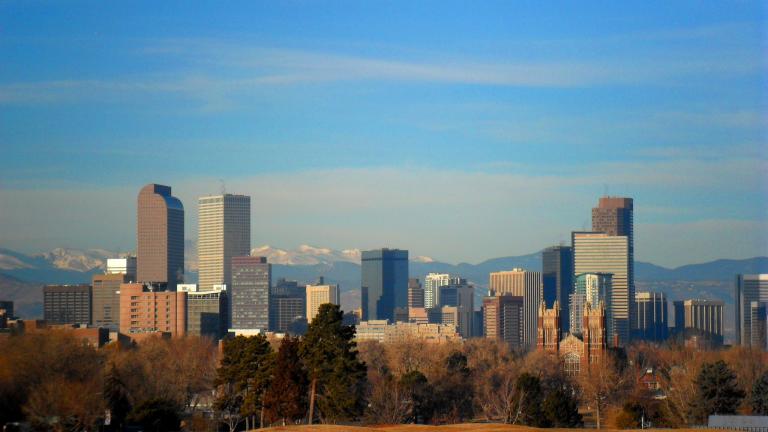
This next column, regarding the debt that we owe to God and our predecessors, had already appeared in the Deseret News on 22 November 2012:
William Ernest Henley’s famous Victorian-era poem “Invictus” provided the title and the theme for Clint Eastwood’s inspiring 2009 film about Nelson Mandela. It also provided the memorable claim, “I am the master of my fate: I am the captain of my soul.”
It’s a stirring assertion, and, in a very real sense, true. A great proportion of what we are and do rests upon our own decisions.
But not everything, and perhaps not the most important things. Henley’s claim is also false and misleading.
As I write, a friend and neighbor is recuperating from a catastrophic fall that lacerated his face, took out most of his teeth, broke major bones everywhere in his body, and very nearly killed him. As he plunged toward the ground, he certainly wasn’t the master of his fate, and he’s scarcely more so as he lies in a hospital bed. Those who’ve surveyed the spot where he landed regard his survival as a miracle, and he himself, speaking with difficulty, testifies to it.
“I thank whatever gods may be,” says Henley, “for my unconquerable soul.”
Thirty years ago, my wife and I traveled with our infant son from Southern California to her parents’ house in Denver, where the whole extended family were gathering for a Christmas trip to Florida. We participated in a “Messiah” sing-along and then went home to prepare for our flight to Orlando the next morning.
But then came what’s been called “the Christmas Eve blizzard of 1982.” Stapleton International Airport closed at 9:30 a.m. on Dec. 24, remained closed for fully 33 hours, and then, for several days thereafter, was open only for severely limited operations.
Ten-foot-high snowdrifts were left throughout greater Denver, highways into and out of the city were shut down, power outages darkened large portions of the metropolitan area, roofs collapsed, supermarkets closed because their employees couldn’t get to work, hospitals were reduced to minimal staff on emergency power and snowmobiles dominated suburban streets.
It was astounding to me, and revealing, to realize how easily simple snowfall could shut down a major modern city quite accustomed to seeing it.
We’re plainly not entirely the masters of our fates, the captains of our souls. Rather, as Elder Orson F. Whitney (d. 1931) of the Quorum of the Twelve Apostles put it in “The Soul’s Captain,” his response to “Invictus,” “Men are as bubbles on the wave, as leaves upon the tree.”
We’re fragile creatures. A few days without food, even fewer without water, a few minutes without oxygen and we’re gone.
If our hearts miss just a few beats, none of our plans, ambitions, schemes or careful investments will mean a thing. And, in the end, no matter how we fight it, we’ll die.
Our comfort and survival in the meantime depend upon cycles of evaporation and precipitation that few of us really understand, and we rely upon complex networks of exchange and transportation that very few of us could begin to explain.
The ground on which most of us live and where our food is grown was cleared of rocks, trees and stumps by millions of hardworking people whose names we’ve forgotten.
Our cities — big and small — feature large buildings erected by generations of construction workers to whom we’ve probably never given the slightest thought.
We owe a debt of gratitude that we can never repay.
“For behold, are we not all beggars? Do we not all depend upon … God, for all the substance which we have, for both food and raiment, and for gold, and for silver, and for all the riches which we have of every kind?” (Mosiah 4:19).
The Book of Mormon’s Amulek wisely counsels us that we should “humble ourselves even to the dust, and worship God, in whatsoever place we may be in, in spirit and in truth; and that we live in thanksgiving daily, for the many mercies and blessings which he doth bestow upon us” (paraphrased slightly from Alma 34:38).
In the United States, where many of us are gathering together as families and friends for the Thanksgiving holiday, this is an exceptionally appropriate day for us to remember the debt that we owe to those who’ve preceded us and to God, “in whom we live, and move, and have our being” (Acts 17:28).


